29/04/2008
The global Pope
John Paul II found a Church that was in transition, taking on a human face and shifting perhaps intuitively towards those who were seraching for another path. Will Benedict XVI forge a creative continuation of the work of global Pope?
MAREK J. ZALEWSKI
Habemus papam – these words rang out from the Vatican on the second day of the conclave after only four voting sessions. This is undeniable proof that all those who believed that a quick decision would be reached, given that nearly all of the cardinals were appointed by Pope John Paul II, were right.
What does that mean? It is obvious that there will be no breakthrough in the consolidation of the traditional (or even conservative) Catholic Church from within nor the reinforcement of its external image as an institution that is seemingly open and even modern.
Cardinal Ratzinger was actually an intriguing choice on the part of John Paul II. A pope “from a far off country” put his faith in a dignitary of the German Church, entrusting him with one of the highest posts in the Vatican hierarchy. At the time it was already clear just what views Cardinal Ratzinger espoused. Views which, we should add – in light of their conservatism – were the source of growing conflict in the German Church. Many years of cooperation with John Paul II did nothing to dull the edge of these views, which I fear were only strengthened. The best proof of this was the evidently cautious joy expressed by German catholic communities. Poles, by comparison, were almost hysterically overjoyed with the Tuesday announcement. As usual we could not maintain a distance or take a moment to consider. This is neither the first nor – assuredly – the last time.
We exhibit a similar approach with respect to evaluations of the pontificate of the Polish pope. Only superlatives and reflective pride in his accomplishments. Given the length of his pontificate (3rd in the history of the Church) and the times in which he lived, we must take a closer look. Was he really as fantastic as we want to see him? Was everything that John Paul II said, wrote or did good and equally valuable?
The nearly 27 years of John Paul II’s pontificate span a breakthrough period in the history of the contemporary world. It is said that thanks to this pope the socialist bloc collapsed and that freedom and democracy triumphed. This is certainly true, but is that all?
I am reminded of a certain cartoon from many years ago, penned by Szymon Kobyliński and published in
Polityka weekly. The picture features an older man watching a parade on May 1st who notices a banner carried by young people in the procession that says “We were born to act.” His rhetorical comment/question is “I wonder what mommy was doing with daddy during this time?”
This is similar to attempts to explain everything that happened in Europe after 1978 using the pontificate of John Paul II. There is no doubt that his pontificate acted as a catalyst for many changes that took place during the last quarter of the 20th century. However, declaring it responsible for all these positive developments is a typical example of “ad hoc” thinking – in other words if A preceded B, then A caused B.
Let’s look at it from a slightly different angle. Wasn’t a secondary factor in the collapse of communism the desire to destroy a structure that remained outside of Church control? On the other side of the globe in South America, the same pope condemned the authors and adherents of Liberation Theology because they were active in countries with which the Vatican didn’t have very good relations and in which leaders didn’t react to the pope’s appeals for respect for human rights. The most outstanding example of this involves support for dictatorial regimes on the continent. The Church turned a blind eye to pride and megalomania. No one heard from Vatican dignitaries about the inappropriateness of squandering money on a new altar. The fact that John Paul II left behind no property is only a sign of how faithfully he served the Church.
John Paul II was certainly a breakthrough pope. His intelligence and knowledge enabled him to use modern methods in building his pontificate. The pope’s close to 110 foreign pilgrimages, during which he visited nearly half of the countries of the world (and a few several times), represent a closer approach towards millions of believers. For the first time in the Church’s 2,000-year history, the shepherd went out among the sheep. Does that mean that the entire Church moved with him? I don’t think so. John Paul II found a Church that was in transition, taking on a human face and shifting perhaps intuitively towards those who were searching for another path. First and foremost a Church with increasingly empty houses of worship. The decision made during the Vatican II Council to introduce holy masses in national languages was a result of this process.
John Paul II appealed to believers to “open the door” and “not be afraid.” In the meantime it was the institution of the Church which was afraid of social changes. The pope appealed for more openness, but the Church remained closed. What do we – Christians – really know about the Church? Not much at all if anything. The Church remains ever closed, keeping its secrets from believers and will certainly remain so for some time to come. The mysteries that take place behind the walls of the Vatican still have little to do with the enthusiasm of crowds of the faithful that rushed to meet with Pope John Paul II and will welcome Benedict XVI with the same fervor if he follows in the footsteps of his predecessor’s missionary pilgrimages around the world.
By taking advantage of the mechanisms of globalization, first and foremost television, the pope became the most influential globalist. He won numerous surveys for Man of the Year and was the subject of countless initiatives for Noble Peace Prize nominations. The Vatican itself intervened in this affair, expressing the inappropriateness of these initiatives. The satirical French weekly Le Canard Enchaine published an interview with God after the pope’s death in which, following one reporter’s reference to John Paul II as a “superstar,” God sets the record straight with the response “I’m the superstar here.”
Nonetheless John Paul II became a superstar. He found a Church searching for its way and left the institution unusually strengthened, but still centralized and even more entrenched in its conservatism. One paradox – John Paul II knew how to rule by the “power of the spirit” in a time when those souls were searching for their place in a time of doubt. That is the essence of this pope’s greatness and his merits for the institution of the Church will remain immortal.
And the faithful? Their numbers during papal pilgrimages and sincere sadness at the moment of his death testify to the fact that this someone was in the right place at the right time. Both the Church and successor of John Paul II face an enormous task. In an internally reinforced Church, which has earned gargantuan reserves of trust through the pope “from a far off country,” the time for changes has come, changes which will be capable of making good on that debt. If Benedict XVI limits himself merely to the passive imitation of his predecessor in creating the tactics and strategy of the Church in the coming years, then it may become evident all too soon that these efforts are too modest. Perhaps they will indeed lead to the erosion of religiosity and take us back to a time before John Paul II’s pontificate when the temple was empty and the voice of the Church weakening.
Will Benedict XVI forge a creative continuation of the work of John Paul II, the global pope? All things being equal, I rather doubt it.


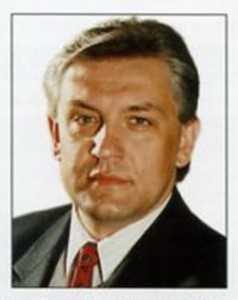
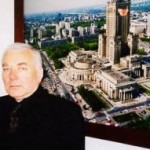
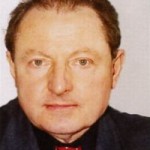
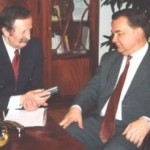
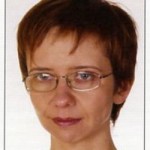
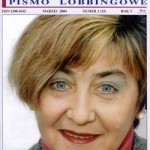
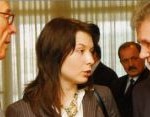
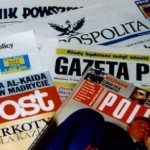
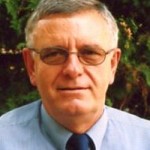
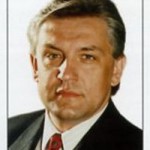
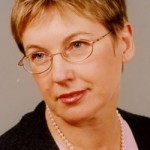
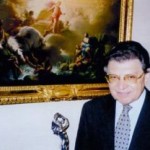
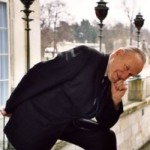
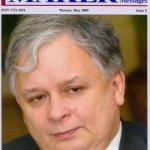
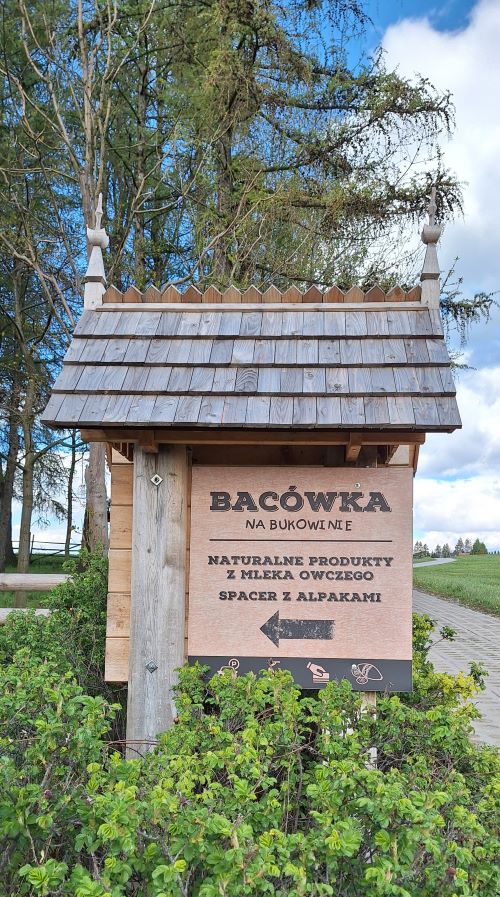
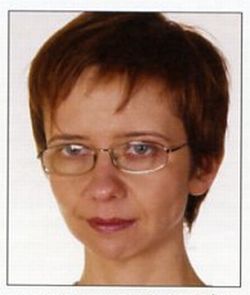
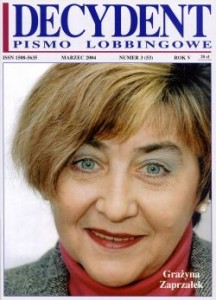
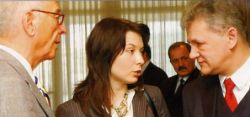
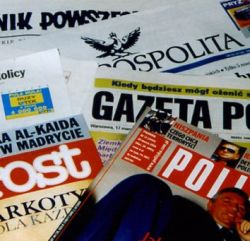
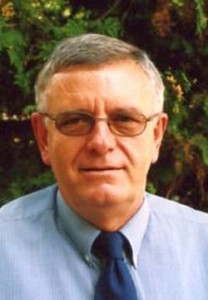

III COUNCIL OF EUROPE SUMMIT
Forum for dialogue
May 16-17 this year, 46 leaders of European states met at the Royal Castle in Warsaw, with the exception of Belarus which is not a COE member. Poland represents Prof. Tadeusz Iwiński. więcej...